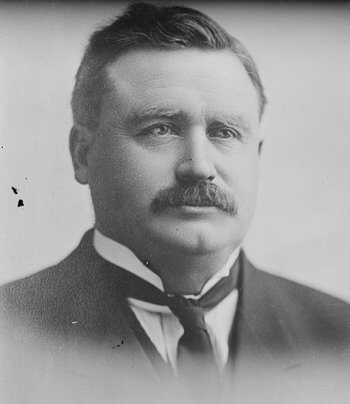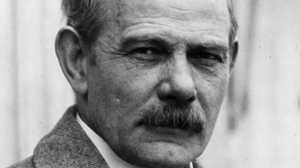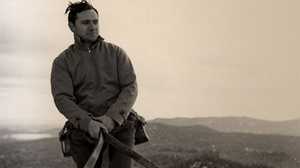Senator Peter Norbeck

Senator Peter Norbeck was Mount Rushmore's great political patron and helped raise almost a million dollars for the project during the years of the Great Depression.
Born in Clay County, South Dakota in 1870, Peter Norbeck was a lifelong Republican. The son of Norwegian immigrants, Norbeck was a successful well-driller. He served as a state senator and Lieutenant Governor of South Dakota before being elected Governor of his state in 1917. After four years as Governor, Norbeck won a seat in the United States Senate and was re-elected twice. During Norbeck's years as a senator, Doane Robinson came up with the idea of carving a mountain in the Black Hills and found an artist, Gutzon Borglum, who could do it.
As a freshman Senator, Norbeck wrote to his constituents about life in the nation's capital: "Nearly everybody in Washington spends from 100 to 110 percent of what they can earn. ...This is the first place I have ever struck where nearly everybody believes he has some particular standard to be maintained. ... I never realized there could be so much that is artificial about our lives. ... There is less independence of thought and action here than any place I have ever been."
Norbeck instigated the appropriation of funds for Mount Rushmore in Congress
Borglum was just the sort of flamboyant, grandiose character living beyond his means that Norbeck wrote of, and yet he seemed like he might be able to actually get this monument made. And so he wired the incumbent governor Carl Gunderson: ...I think this might be an opportunity to secure one of the national attractions in this country of the highest artistic quality stop ... It is an opportunity we should not miss.
Still, Norbeck was realistic and wrote presciently to Robinson: "I don't want to dampen your ardor, but I feel that ... Stone Mountain [Borglum's then-current mountain carving enterprise] work will come to a standstill on account of finances." A similar situation would manifest itself at Mount Rushmore, but Rushmore always had Norbeck to help find public funds for the memorial.
The first big appropriation was guided through Congress by Norbeck, providing for $250,000 of matching funds and the creation of the Mount Rushmore National Memorial Commission. When the senator was invited to join the Commission, he declined: "I could not accept such a position when so many of my South Dakota friends, who have sacrificed much for this undertaking, desire to be members and must be left off." Undoubtedly Norbeck was thinking of Doane Robinson, who had first conceived of the huge monument and ushered it into being but was not invited to join the Commission.
Time and again, Rushmore ran out of money and Borglum barnstormed around Washington asking for more — without coordinating with the level-headed senator who was closing the deals. Colleagues were often curious as to why Norbeck was asking for thousands of dollars more (or less) than Borglum was asking for. The senator complained to the artist, "I will not even start until you quit, for you will not harmonize your plans with anyone else."
By 1935, Senator Norbeck was suffering from cancer of the tongue and jaw. At the 1936 dedication of the Jefferson head, he could only stand by mutely as Franklin Delano Roosevelt and Borglum made their statements. On December 20, 1936, Senator Peter Norbeck passed away at his home.







